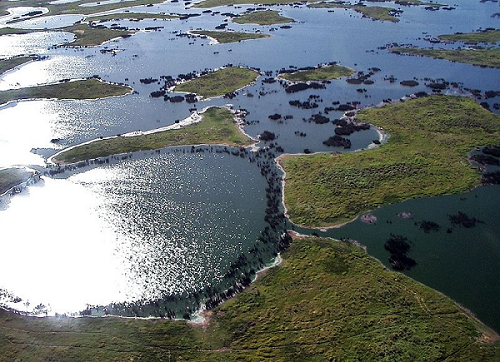Earthquake (or earthquake) is a Latin term “terrae motu” which means “movement of the earth”. the earthquake is a natural phenomenon characterized by a strong earthquake resulting from factors such as the encounter of different tectonic plates (blocks that form the earth's crust), geological faults, or yet, volcanic activity.
Earthquakes are also called earthquakes or earthquakes. A seismic shock results from the Earth's internal dynamics, and rapidly releases large amounts of energy and produces elastic waves (vibrations) that propagate throughout the Earth.
Some terms related to earthquakes are: hypocenter (or real focus), where movement originates and epicenter, which is the part of the surface of the Earth's crust that is most severely affected.
These terrestrial movements are registered and studied in seismological stations, through the use of instruments such as the seismograph, for example. These stations try to predict the occurrence of earthquakes, taking into account the verified geophysical disturbances.
Depending on its magnitude and intensity, an earthquake can have catastrophic effects on inhabited areas. A high magnitude earthquake can destroy buildings, bridges, streets, roads, etc. Weak earthquakes or micro-earthquakes occur daily all over the world, but are not felt due to their low magnitude.
The magnitude of an earthquake is the amount of energy released in the hypocenter, usually measured using the logarithmic scales of Richter or Magnitude of Moment (MMS). When the magnitude reaches values greater than 6 degrees, the effects of earthquakes can be destructive in inhabited places. The highest recorded magnitude was 9.5 degrees in Chile in 1960.
Intensity qualitatively measures the consequences of the earthquake on the Earth's surface. The Modified Mercalli Scale is the most used and varies in intensity from I to XII degrees.
The earthquakes that happen in the oceans cause the tsunamis. Depending on the volume of water and energy displaced, tsunamis can wreak havoc on a region.
The regions of planet Earth where the occurrence of earthquakes is greater are: Italy, Kazakhstan, Uzbekistan, Greece, Turkey, Iran, China, Japan (particularly the area known as the Pacific Circle of Fire), California, and the west coast of South America.
Haiti earthquake
On January 12, 2010, Haiti was hit by an earthquake that registered a magnitude 7.0 on the Richter scale. Approximately 200 000 people died and many parts of the country were completely devastated. Haiti, one of the poorest countries in the world, received humanitarian aid from several countries, including Brazil.

